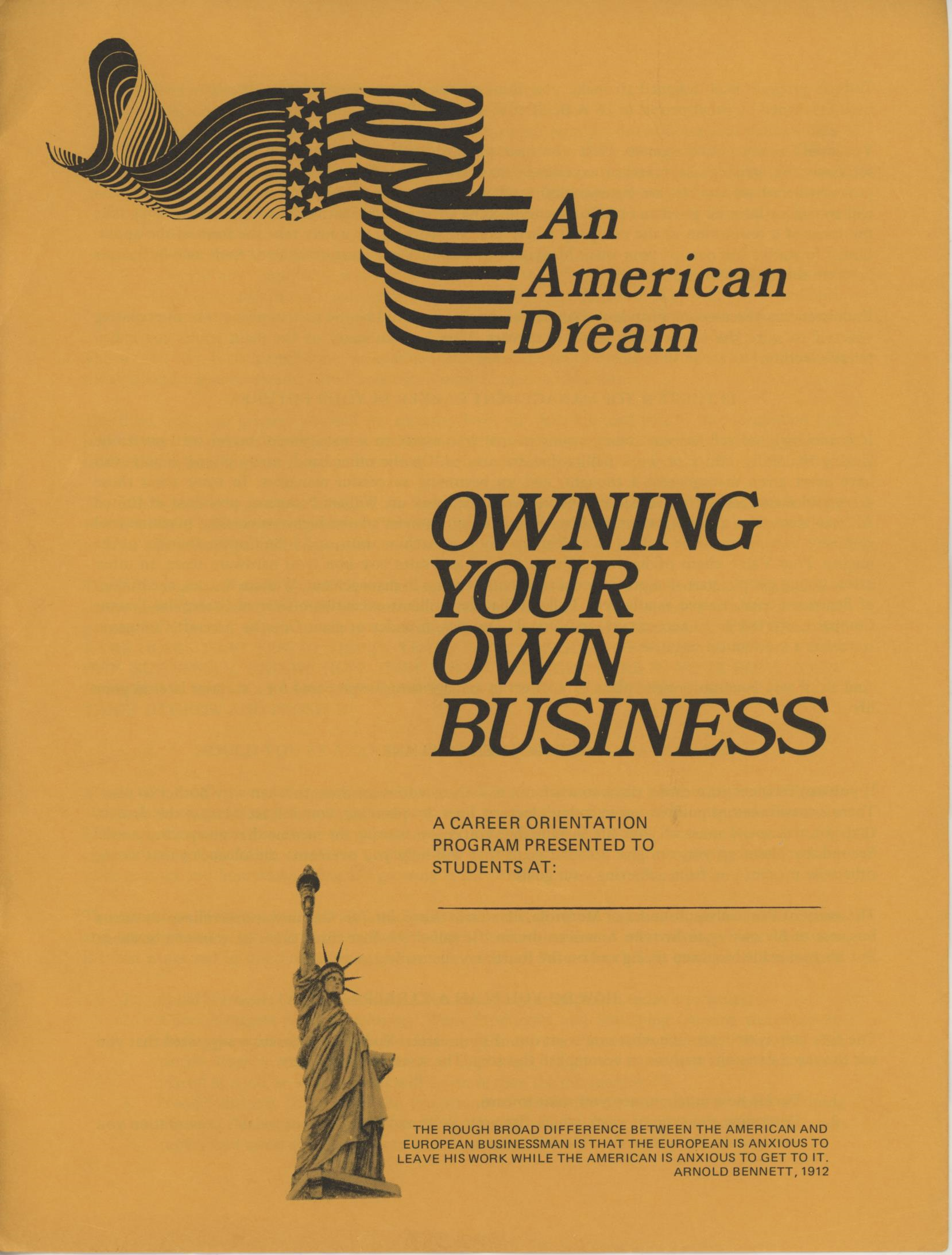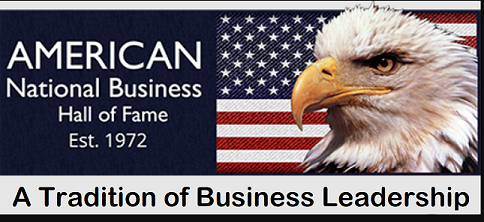 Click on picture to view Owning Your Own Business Handout
Click on picture to view Owning Your Own Business Handout
The founding of the American National Business Hall of Fame was inspired by a particularly virulent strain of anti-business protests which erupted on college campuses during the period 1969-1971. The business school faculty members who witnessed that eruption were appalled at the economic illiteracy which those actions reflected. Students seemed to see the actions of a limited number of unscrupulous persons in business as representative of business in general. The hall of fame founders thought that one partial antidote for this anti-business sentiment could be the telling of heroic business success stories in college classrooms.
The hall of fame founders envisioned those success stories as illustrating business best business practices and good business ethics. In terms of ethical standards the decision was made that candidates should at least measure up to the ethical standards of the candidate's time.
The founders were no exception to the rule that university faculty members tend to think within the frame of the professional paradigm of their time. The frame prevailing at the time the ANBHF was founded was that of the socially responsible business as the ideal and democratic capitalism as the means whereby the rules of the marketplace would enable ethical business leaders to come reasonably close to achieving that ideal. In the management literature of that time the term ‘stakeholder management’ was the commonly used name associated with that ideal. Stakeholder management involves a sustained effort to serve customers, employees, the local community and other population groups upon which the activities of the firm impacted.
Contrasting with the stakeholder approach is the shareholder approach. This management philosophy holds that management should focus on its responsibility to the shareholder (the owners of the corporation). At its best the stakeholder philosophy requires management to adhere to the ethical standards of the times. Throughout the twentieth century this was the assumption made by mainstream economics. In part because of the influence of economic theory the stakeholder philosophy regained influence in the management literature beginning in the 1980s and continuing into the twenty-first century.
If you are not familiar with the literature which describes the stakeholder ideal, the ANBHF invites you to read and reflect on the following short list of references:
- Drucker, Peter. Management. Tasks, Responsibilities, Practices. New York: Harper and Row, 1973.
- Frederick, William C. Values, Nature and Culture in the American Corporation. New York: Oxford University Press, 1995.
- Kofman, Fred. Conscious Business. Boulder, CO: Sounds True, 2006
- Kuttner, Robert. Everything for Sale. The Virtues and Limits of Markets. New York: Alfred A Knopf, 1997
- O'Toole, James. Vanguard Management. New York: Doubleday, 1985.
- Solo, Robert A. Economic Organizations and Social Systems. Ann Arbor: The University of Michigan Press, 2000 ( originally edition published by Bobbs-Merrill in 1967).
Practicing stakeholder management is not a requirement for election to the ANBHF. Business leaders who practice the alternative shareholder management approach are just as eligible as stakeholder managers as long as the shareholder manager exhibits acceptably ethical behavior with respect to the other stakeholders. In the 1980s the ANBHF board of state representatives concluded that candidates should be held to the ethical standards of their time, not to the changed standard of a later time in American history.
